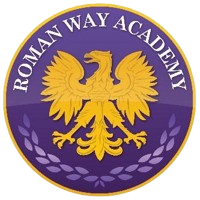Personal, Social, Health and Emotional including RSE
How we teach, learn and assess Physical, Social and Health Education (PSHE) at Roman Way Academy
At Roman Way Academy, we teach Personal, Social, and Health Education as a whole-school approach. We believe it is the responsibility of all staff to promote and encourage the development of children’s personal and social skills. We intend to give our children the skills, knowledge and attributes they need to keep themselves physically and emotionally healthy, and safe. We teach pupils to understand how their actions can impact on their health, wellbeing and safety and, therefore, children can make informed choices.
PSHE underpins our school ethos and values. Pupils are encouraged to take part in a range of activities and experiences across and beyond the curriculum, contributing fully to the life of their school and community. They learn to understand and respect themselves, the diversity and differences of others within our school, community and beyond. At RWA we believe it is important to support our pupils to play a positive role in our ever-changing society and to empower them with the social and emotional vocabulary needed to voice their ideas, thoughts and opinions.
At Roman Way Academy we use ‘Jigsaw’ to teach PSHE from ages 3-9 (Nursery to year 4). Jigsaw is a comprehensive, carefully thought-out scheme of work which brings consistency and progression to meet the needs of our children. This scheme contributes to our school values and ethos and significantly reflects our behaviour and safeguarding polices, including statutory Relationships and Health and Sex Education. The programme is regularly updated to ensure we are using teaching materials that are up-to-date.

|
Autumn Term 1
|
Autumn Term 2 |
Spring Term 1
|
Spring Term 2
|
Summer Term 1 |
Summer Term 2
|
|
Being Me in My World |
Celebrating Differences |
Dreams and Goals |
Healthy Me |
Relationships |
Changing me |
The policies below give more detail regarding what each year group is taught and clearly show the progression from Nursery to Year 4.
Below is a summary of relationships and Sex Education (RSE) coverage within the Jigsaw scheme of work for each year group (refer to the RSE policy for more details).
EYFS – growing up – how we have changed since we were babies Year 1 – Boys’ and girls’ bodies; naming body parts.
Year 2 – Boy’s and girls’ bodies; body parts and respecting privacy (which parts of the body are private and why).
Year 3 – How babies grow and how boys’ and girls’ bodies change as they grow older.
Year 4 – Internal and external reproductive body parts, body changes in girls and menstruation.
As part of PSHE, Relationships Education (RE), Relationships and Sex Education (RSE) and Health Education England Regulations 2019, have made RE compulsory in all primary schools from September 2020. As RE is a statutory part of the school’s curriculum, parents may not withdraw their children from these lessons. RE teaches the fundamental building blocks and characteristics of positive relationships, with reference to friendships, family relationships and relationships with peers and adults. This begins with children being taught about what a relationship is, what friendship is, what family means and who the people are who can support them. RSE is a form of sex education which focusses on exploring the emotional, social and physical aspects of growing up and having relationships. Parents/carers have the right to withdraw their children from all or part of the RSE provided at school except for those parts included in the statutory National Curriculum for Science. If parents/carers wish to withdraw their children from sex education, then they are advised to discuss this with the Headteacher.
Work is planned appropriately for all classes to enable children to develop both personally and socially. It deals with real life issues which affect children, their families and their communities and engages the social and economic realities of their lives, experiences and attitudes. The promotion of high self-esteem is considered important for all children.
PSHE is assessed in a variety of ways. When planning, teachers use the progressive skills ladder as well as the long-term overview to keep coverage consistent and interlocking to previous learning. Teachers will start lessons with a retrieval question which gives the children the opportunity to question, explore and strengthen their understanding.
Each lesson will also have a learning objective at the start and a reflection question at the end of the lesson. Class teachers reflect upon the children’s learning to assess their understanding and, where appropriate, encourage children to extend their answers and make links with first-hand experiences and situations in school.
Other types of formative assessments are also used within PSHE as part of the Roman Way Assessment Strategy. Termly assessments are recorded on Insight and progress is reported to parents at the end of each academic year as part of the annual report.
PSHE is closely linked but not limited to the following policies:
- Equal Opportunities Policy.
- Special Educational Needs Policy.
- Behaviour Policy.
- Anti-Bullying Policy.
- Safeguarding and Child Protection Policy.
- Religious Education Policy.
- Physical Education Policy.
- Science Policy.
Talk PANTS & Join Pantosaurus - The Underwear Rule | NSPCC
